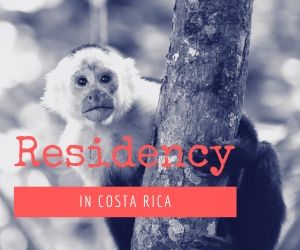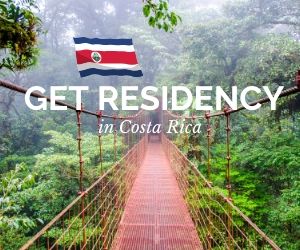Safety and security misconceptions and myths
Updated 8/8/2006 5:59 PM ET
http://www.usatoday.com/travel/columnis ... sman_x.htm
RISK PERSPECTIVE
The average American has a . . .
1 in 7,000 chance of dying in a traffic accident
1 in 17,000 chance of being murdered
1 in 10,000,000 chance of being killed by a terrorist
Which city is more dangerous: Baghdad or Caracas, Venezuela? If your answer is Caracas, you are correct according to Dr. Peter E. Tarlow, an expert in crime, terrorism, and risk management in the travel industry. Though similar in population, Baghdad is on pace to have 7,000 murders this year, while 15,000 will be killed in Caracas (are you listening, Sparky?).
"You have double the chance of being murdered in Caracas than you would in Baghdad," Tarlow told a surprised audience at a session on "safe" travel at the recent National Business Travel Association annual conference. Protecting personnel on the road is a growing concern among corporate travel managers.
Many people say they feel safe when traveling. But our sense of "safe" is often distorted by media coverage (or the lack of it) and distance, according to Tarlow. For example, the disappearance of Natalee Holloway gained worldwide attention and caused a decline in visitors to Aruba, even though it is the safest island in the Caribbean with only a handful of murders each year.
By contrast, "Right now there are 1,000 people missing in Las Vegas," said Tarlow. Your chances of being a victim of foul play are far greater in Las Vegas than Aruba, yet no one is canceling their trip to Las Vegas.
Lack of familiarity also breeds misconceptions: "The further you are away from the spot [of bad news] the more it seems to encompass everything," Tarlow told the audience. During the 2002 winter Olympics many foreign visitors inquired if Salt Lake City was safe because of what happened in New York City and Washington, D.C., on Sept. 11, 2001.
Another common distortion involves time. "When an incident takes place the further you are from that place the longer it lasts in people's minds." Tarlow cited the murders of five or six European tourists in Florida in 1993. "In the U.S. that is basically a forgotten issue." But outside the U.S. people still remember what happened to the foreign tourists in Florida 13 years ago.
When I traveled abroad in the 1980s, foreigners always chanted "Al Capone" when I told them I hailed from Chicago. It took almost half a Century and Michael Jordan and the three-peat NBA champion Chicago Bulls to eradicate that outdated perception of Chicago in the minds of those outside the U.S.
So the next time some asks "Is it safe to go to (fill in the blank)?" I will take Tarlow's advice and ask for more specific information before offering a response.
Health issues and terrorism grab the headlines but crime and accidents pose far greater risks for travelers. (see chart) In 2003 only 48 people died of SARS in Toronto and all of those deaths were connected to hospitals. But fear caused hotel occupancy rates to plummet from 87% to 13%. In the same brief period 80 people died in traffic accidents in Toronto. But, once again, no one cancelled a Toronto trip for fear of dying in a traffic accident.
Petty thievery, such as pick pocketing or "crimes of dispersion", such as dishonest taxi drivers who supplement their income by taking a circuitous route, are the most common types of crime against travelers according to Tarlow. Now I know why I am continually arguing with taxi drivers who are trying to take me for a ride in more ways than one.
Tarlow does not believe crime statistics because most crimes are never reported. Travelers often have a plane to catch or an important meeting to attend and don't have the time or desire to go through the hassles of contacting the authorities. Even if the criminal is found, few travelers are going to buy another airline ticket and return to the city where their wallet was stolen in order to prosecute a criminal. Criminals know this, according to Tarlow, and that is why they will opt to roll a visitor rather than a local.
In addition, people tend to lose their inhibitions and common sense when traveling, exposing themselves to all kinds of risks and dangerous situations. Many people will leave their wallets in their room or leave the door ajar when they go to get ice.
Tarlow recommends contacting police departments or newspapers for local information about crime and safety. Many newspapers regularly publish local police reports, so if you're concerned about crime in the area, check the website of the paper in the place you're visiting for the latest updates.
"The last place to call is the national tourism office or convention and visitors bureau," he told the audience. They're always selling and may not provide accurate information.
The best way to prevent crime on the road is to leave your valuables at home.
"If you cannot afford to lose it, don't take it," said Tarlow. As the owner of a used laptop I bought on EBay for $275, I am already heeding Tarlow's advice. He also recommended dressing down and toting old, beat up luggage. "When you travel you are judged from a security perspective on how good or bad you look."
Until recently safety was viewed as a pain-in-the-neck that brought nothing to the bottom line. But today safety and security have become essential components of almost every business.
"People don't feel comfortable going on business travel if they don't think they're going to be safe," said Tarlow. And they tend to remember more, stay longer, and make better contacts when they feel safe. Safety is a primary responsibility of every travel manager and Tarlow is out there educating the world and debunking travel security myths.
Meanwhile I'm running around with my beat up suitcases and non-descript wardrobe trying to stay out of harm's way.









